BY WALTER OPINDE
Born on 26th September, 1899 in Anniston, Alabama, William Levi Dawson was the first among the seven children of Eliza Starkey and George W. Dawson, which was a Black American family. By the age of thirteen, William flees from his parental home to join the Tuskegee Institute. An action that made him involve in manual labor to support himself. Dawson became a member of the Tuskegee’s band and orchestra, and later completed his education Tuskegee Institute in 1921.
In order to further his studies, Dawson studied composition and orchestration with Henry Stearns at Washburn College in Topeka, Kansas City. He also studied counterpoint with Sir Busch Carl in Kansas. In 1925 the young Mr. Dawson received a Bachelor’s Degree in Music Theory at the Horner Institute of Fine Arts in Kansas. Moreover, while in Chicago, at the American Conservatory of Music, William studied the art of musical composition with Mr. Adolph W. and later graduated in 1927; having attained a Master’s Degree in Musical Composition. Upon his graduation, he further studied with renowned composer and theorist- Thorvald Otterstrom at Chicago.
From 1926 to 1930, Dawson held the positions of first trombonists in the Chicago Civic Orchestra- Eric De Lamarter and Stock Frederic (conductors). As well, he won the Chicago Daily News band director contest in 1920. Later, in 1930, Dawson won the Wanamaker Contest prize for the best song and orchestral compositions. Mr. Dawson, in 1931, organized, supervised and headed the Tuskegee Institute’s School of Music. Through his stewardship, serving as a conductor from 1931 to 1955, the Tuskegee Institute’s choir, made up of a hundred voices, gained a gradual international eminence. For instance, between 1932 and 1933, the Tuskegee Choir was a major attraction and grabbed the much-needed attention at the opening of the International Music Hall of Radio City- in New York. Through a distinguished invitation, the Tuskegee Choir was called upon to perform what they do best to President Herbert Hoover in the White House, and later, to President Franklin Roosevelt at Hyde Park in New York. Due it the choir’s prominence and reputation, it further performed in several events held in prestigious concert halls, such as the Academy of Music in Philadelphia, Carnegie Hall, and Constitution Hall in Washington. This international or wide-ranging reputation also earned the choir, giving it the opportunity to offer several performances over the national radios channels, including the ABC, CBS, and NBC among others. Mr. William Dawson later, in 1955, resigned as the Director of Music at the Tuskegee Institute.
As a rare occurrence for African American, Dawson made several guest appearances all through the U.S. and across borders. He worked with several other leading university choir workshops, as well as the All-State Choirs. By 1952, Mr. Dawson traveled to West Africa with the primary aim of conducting research on the indigenous music across many West African countries. After his resignation from the Tuskegee Institute in 1955, he was sent, in 1956, to Spain by the U.S. Department of State to go and conduct Choral ensembles of the county. The concert tour’s highlight was a special concert, with the legendary Orfeon Donostiarra of San Sebastian in the Bascilica at Loyola on 29th July, 1956. About a decade and half later, Dawson was featured as a keynote speaker, in 1972, at the Afro-Caribbean Music Conference in St. Thomas- Virgin Islands. One of Dawson’s compositions included the “Negro Folk Symphony,” which was world premiered by the Philadelphia Orchestra and Leopold Stokowski.
Mr. William Dawson, as a musical composer, earned several honors, which included the Honorary Degree of Music Doctorate from Tuskegee Institute (University). He received this honor in 1956 at the institution’s Diamond Jubilee. Later, by 1975, Mr. Dawson was honored by the American Choral Directors Association for a pioneering inspiration, leadership, and his outstanding service to the choral art industry. Three years later, in 1978, he received an Honorary Degree of Doctorate in Laws from the Lincoln University, and by 1982, the Honorary Doctor of Music Degree was conferred upon him by Ithaca College in Ithaca- New York.
On date 12th May, 1989, Dawson was given the prestigious Tuskegee University Board of Trustees Distinguished Service Award, and later honored by the Tuskegee Institute during his 90th birthday celebration in September. William Levis Dawson died a prominent man, as a music composer, on 2nd May, 1990. His corpse was buried in the Tuskegee University cemetery, and his composition legacy still lives at the Tuskegee University Golden Voices Choir, and the entire America.
“Read more of the original story via: http://www.blackpast.org/aah/dawson-william-levi-1898-1990”
Sources
Southern, Eileen (2007). The Music of Black Americans: A History. W. W. Norton.

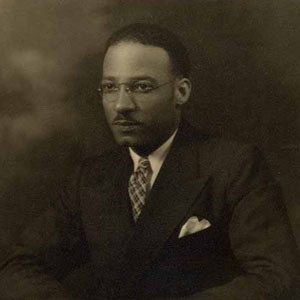




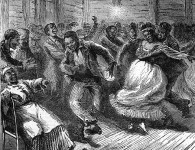
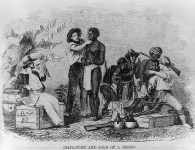
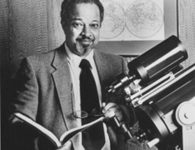
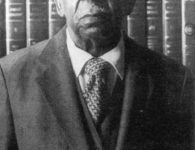
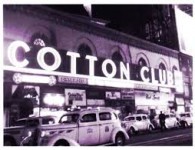
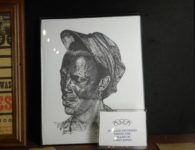
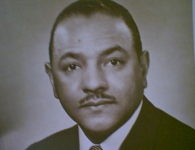
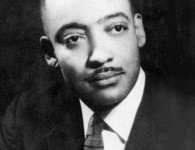





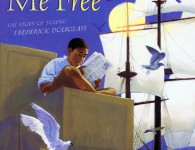

No comments